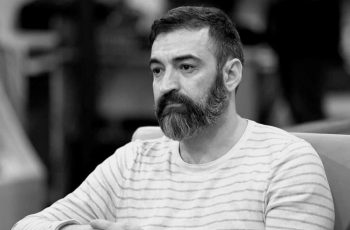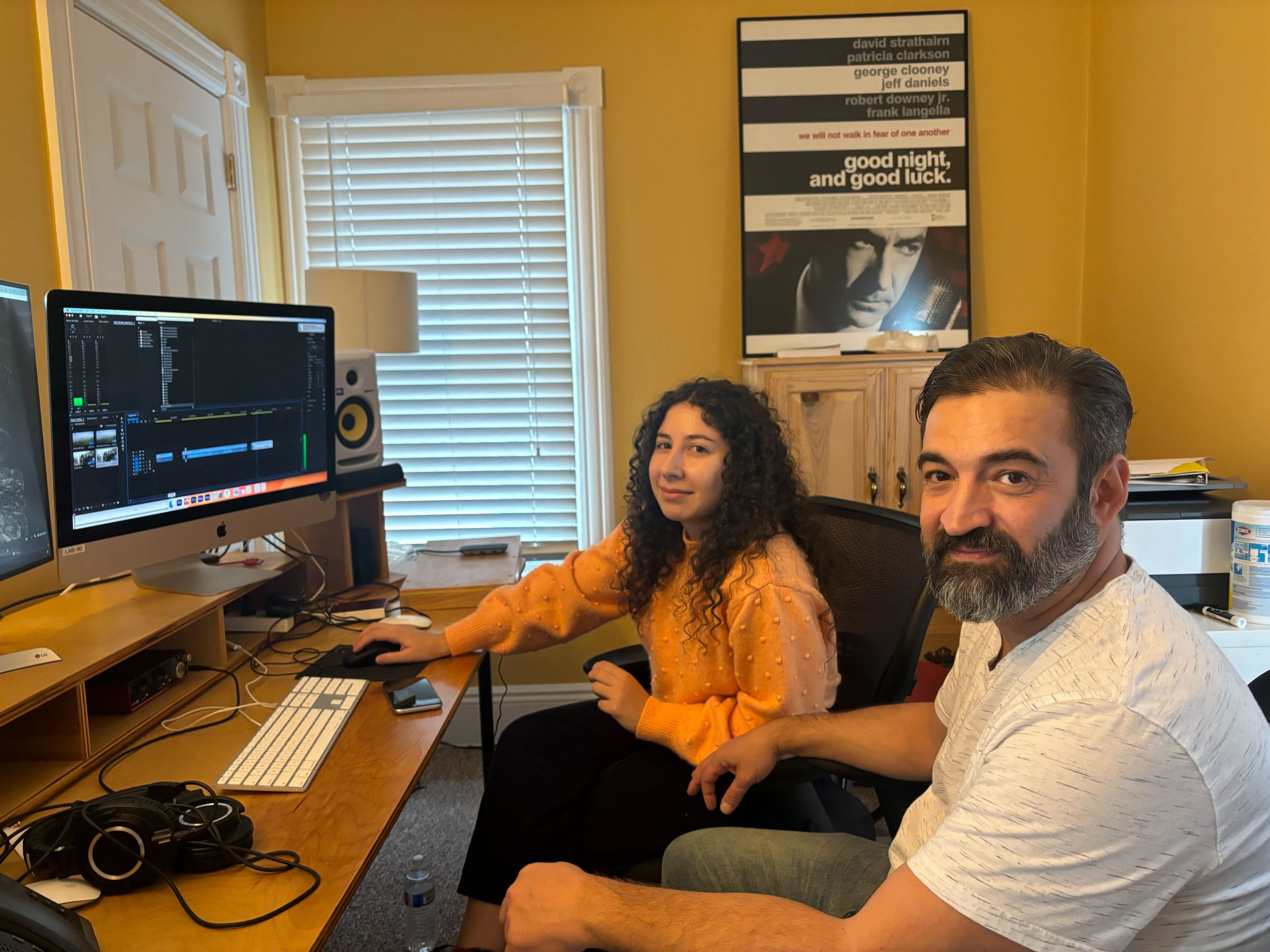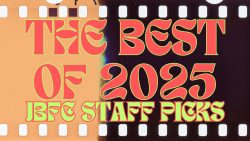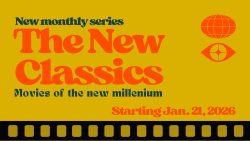Posted December 11, 2023
Artists-in-Residence: Ana Kvichidze and Avto Khorava
As a part of our ongoing interviews with Artists-in-Residence at the Jacob Burns Film Center, we recently caught up with Artists-in-Residence—Ana Kvichidze and Avto Khorava—to talk about their current work.
1. How did this residency come about, and how did you learn about the Burns?
Our project participated in the development program Close Up Initiative and that proved to be a turning point for our work as we gained a lot of knowledge and inspiration. One of the highlights of Close Up was our selection as Artists-in-Residence at the Jacob Burns Film Center.
2. Can you tell us a bit about the film you are working on during your residency?
Heart, Don’t be Afraid follows Dachi, a young and lonely queer boy from the conservative and religious highlands of Georgia, known as Lechkhumi. Dreaming of leaving his hometown, Dachi struggles to fit into the conservative, authoritative, and religious society that surrounds him. His sexual orientation, unique clothing, and unconventional views are deemed unacceptable by the people in his community including his family who reject his sexual orientation and identity. During his school years, Dachi faced physical abuse from his parents and neighbors, was compelled to take psychotropic drugs, and underwent conversion therapy in an unsuccessful attempt to alter his sexual orientation. Despite these efforts, Dachi stays true to who he is as his parents choose to remain ignorant of his identity, even though he lives under their roof. The most significant source of suffering for Dachi is his distant and cold relationship with his mother, who redirects all her love and attention toward his younger brother.
In the company of Vardo, an 84-year-old spell caster with knowledge of Georgian traditional magic, Dachi finds solace, care, and understanding. By learning Vardo’s magic techniques, Dachi aspires to use magic as a means to escape daily social oppression and create a reality where he can authentically be himself.
3. What are some of the most interesting things you’ve learned while working on your film(s)?
Ana Kvichidze: In film school we were taught that filmmaking is a constant pressure and struggle, but the most important thing I’ve learned is that filmmaking gives you the unique opportunity to follow your dreams, enjoy the process, and find your own way of doing things.
4. What do you want viewers to learn from your film(s)?
Our film represents the story of many people around the world and tells us about a constant problem that exists in one form or another in every era. We encounter different and excluded individuals throughout the world and time; anyone can find themselves on the “other bank” due to various matters. Often, different people are persecuted by the central power (in our film, by Bishop Stephen) because it is much easier to build the “image of the enemy” out of these individuals, thereby gaining power and authority over them. This is a system in which we revolve. Suppressed by society, such individuals try to find help and a safe place, but oftentimes, especially when young, they are victimized, leading to serious psychological traumas. Left alone and without hope, our character turns to his inner, beautiful world of magic, desperately trying to empower himself with it. In this alternative, mysterious, and beautiful reality, he finds safety, acceptance, and belonging. Heart, Don’t be Afraid is a film about survival; it is about the search for the meaning of life when one is left hopeless and alone.
5. If you had not had this opportunity, how you would you go about completing your film project(s)?
We can’t compare this experience to any other in our lives as it was such a unique and safe place for us. It gave us the comfort to rest and think about our film, which we couldn’t do in our country. After so many years of constant pressure and stress, this felt like heaven for us. Without this residency, we would have had to continue our work under constant pressure and would never have had the space and time to fully open our imagination.
6. Which filmmakers or artists do you most admire/draw inspiration from?
Ana Kvichidze: There was a moment in my life when I thought that filmmaking wasn’t worth the trouble it brought to my life, but watching “Coy Cuba” by Mikhail Kalatozishvili was the turning point— it made me realize that filmmaking was the thing I couldn’t live without.
Ana, Avto, and JBFC Curator-in-Chief Ryan Harrington, who writes, “Ana and Avto’s film, Heart Don’t Be Afraid, takes us into a tense, triggering, timely, and provocative space where sexuality, religion, and mysticism collide. We are glad that our Residency program was able to provide Ana and Avto with the time and space they needed to complete their beautiful film. And, as always, the Close Up Initiative continues to be an incredible partner.”

Ana and Avto celebrating Thanksgiving with JBFC Director of Special Event Programming, Chris Holliday, and his family!


Ana Kvichidze, born in 1993, is a Georgian filmmaker whose works are a blend of cultural heritage and storytelling. She studied directing feature films at Georgia State University's Shota Rustaveli Theatre and Film program and holds a Master's degree in Religion Studies from Ilia State University specializing in folk and vernacular religions.

Avtandil Khorava, born in 1978, is a filmmaker and founder of one of the largest film studios in Georgia. After a long career in business, he decided to take a turn and pursue his childhood dream of photography, founding "Moonbow Production" and starting to make films about culture, rituals, and social issues touching on LGBTQ+ topics.

This residency is in partnership with Close Up–A Cinematic Initiative for Non-Fiction Filmmakers. Close Up is a training and development program for emerging documentary filmmakers from Southwest Asia and North Africa (SWANA). It was established in 2019 as an independent non-profit NGO in Brussels, Belgium by five individual partners. Since our initiation, Close Up has supported the development of 60+ feature-length documentary projects and worked with 90+ emerging documentary filmmakers from SWANA. Films that went through Close Up program have received prestigious international support and grants, including the Sundance Institute, Catapult Film Fund, Chicken & Egg Pictures, IDFA Bertha Fund, Hot Docs Cross Current, The Whickers Foundation, Berlinale World Cinema Fund, Doha Film Institute, and Arab Fund for Arts and Culture to name a few. Positioned at the intersection of arts, media, social change, and peace-building, Close Up is the only initiative of its kind in the SWANA region, creating a transformational experience for emerging filmmakers, coming from diverse ethnic, religious, cultural, and political backgrounds.



